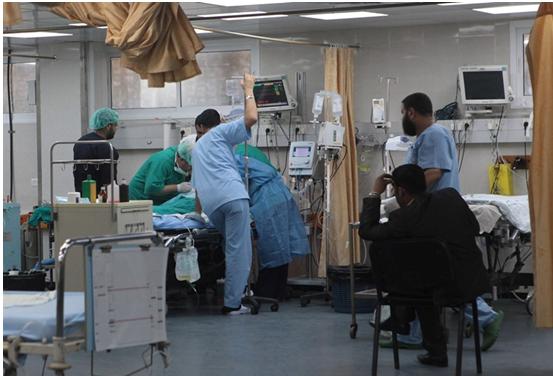During the confrontations along the Gaza border with Israel, Physicians for Human Rights – Israel (PHR) received urgent pleas from physicians in the Gaza Strip describing a healthcare system in a state of collapse, with medical teams feeling helpless, as they are unable to provide adequate treatment to the huge numbers of injured.
Last week PHR published a brief document, with testimonies of seven doctors and nurses from hospitals in the Gaza Strip. The frustration that surfaces from their accounts is obvious: professionals trained to save lives and rehabilitate the injured are facing catastrophic shortage of basic supplies.
This is also due to the heavy workload of the recent confrontations along the border fence, but in the recent decade, shortage and frustration have become part of their professional routine – always begging, imploring, and waiting for aid, donations, and the Israeli permit that will enable them to leave Gaza for professional training. Always short of the basic tools, they need to carry their mission.
The PHR report states that “The responsibility for resolving this crisis lies with all political leaderships in the region – the Hamas government, the Palestinian Authority, and the Israeli government. Each, however, shirks its responsibility and lays the blame on the others, and as with other crises worldwide, the hope for salvation by the international community is shattered time and again.”
“The siege and restrictions on freedom of movement imposed by Israel on the Strip for over a decade; Gaza’s dependence on budgets from the Palestinian Authority, which uses its health system and the people of Gaza in general as hostages to pressure Hamas; and the dereliction of the Hamas leadership of its duties to those people, including giving priority to their socioeconomic and health needs – all ultimately funnel into those decisive moments when the injured are admitted to the hospitals, minutes that determine whether they survive, and how. This paper brings you the voices of those who meet them in those moments, those who try to save their lives,” the document added.
Download the complete document (11 pages, in English)



